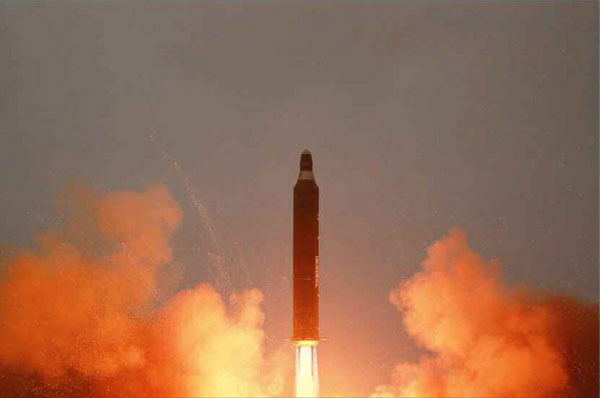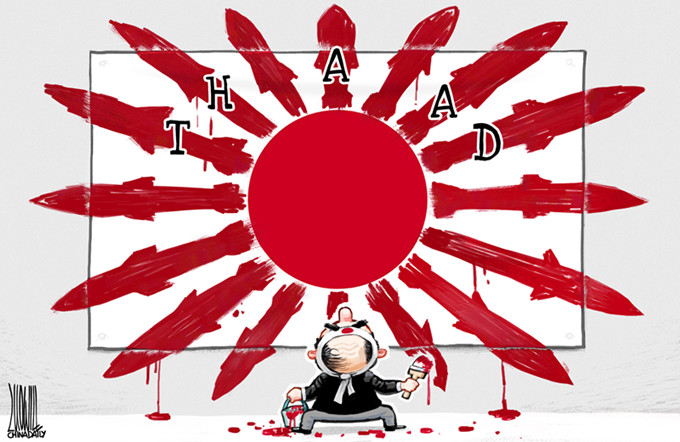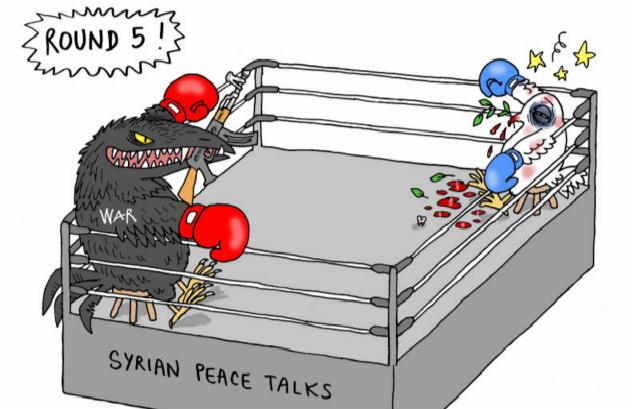Dual-halt approach can ease peninsula tensions
 |
|
A surface-to-surface medium- and long-range ballistic missile Pukguksong-2 is test-fired by DPRK on Jan 12, 2017. [Photo/VCG] |
The talks between US President Donald Trump and Chinese President Xi Jinping in Florida on Thursday and Friday offer a precious chance for China and the United States to bridge the differences that exist between them regarding the Korean Peninsula issues.
Pyongyang said earlier this year it is getting closer to developing its own intercontinental ballistic missiles, which many in the Trump administration believe could hit the US.
As a result, the Trump administration has said it might forgo the “strategic patience” of its predecessor, hinting at a direct strike at Pyongyang. However, that would only increase the uncertainties on the Korean Peninsula. A nuclear-free Korean Peninsula is thus in the shared interests of Beijing and Washington.
That explains why Washington appears to be keener to address the DPRK nuclear issue. Beijing too is concerned about its nuclear-minded neighbor, which conducted two nuclear tests and over 20 missile tests last year alone, as Pyongyang’s frequent test-firings, have offered Washington and Seoul a convenient excuse to upgrade their military alliance. US aircraft carriers like the USS Carl Vinson are more often seen in the regional waters, and the US’ Terminal High Altitude Area Defense anti-missile system is being deployed in the Republic of Korea. Such moves have added yet more tension to the security situation in Northeast Asia, putting at risk the national interests of regional players including China and Russia.
But resorting to military engagement is unwanted and counterproductive.
Tough rhetoric aside, the Trump administration has a lot more to worry about at home. Nor could it stand the economic consequences of starting a war in Northeast Asia, where most countries are in close trade ties with the US. China and Russia will surely oppose the idea of going to war as would most ROK citizens.
As for China and the US, there is still a long way to go to find a peaceful approach to the denuclearization agreed by both sides. China wants the DPRK to suspend its nuclear and missile programs, and the US and the ROK to halt their large-scale military exercises. This “dual-halt” approach is needed to alleviate Pyongyang’s security concerns and notify the country in the meantime that its nuclear path only increases those concerns.
Given the needed amount of pressure, it is possible that the DPRK will make a long-awaited commitment to denuclearization. That could be a window of opportunity for all relevant parties to resume the Six-Party talks and put in action a peace mechanism. The success of the whole plan hinges on whether the US and the DPRK accept the “dual-halt” approach.
The author is a researcher in Asia-Pacific strategy at the Chinese Academy of Social Sciences.





















